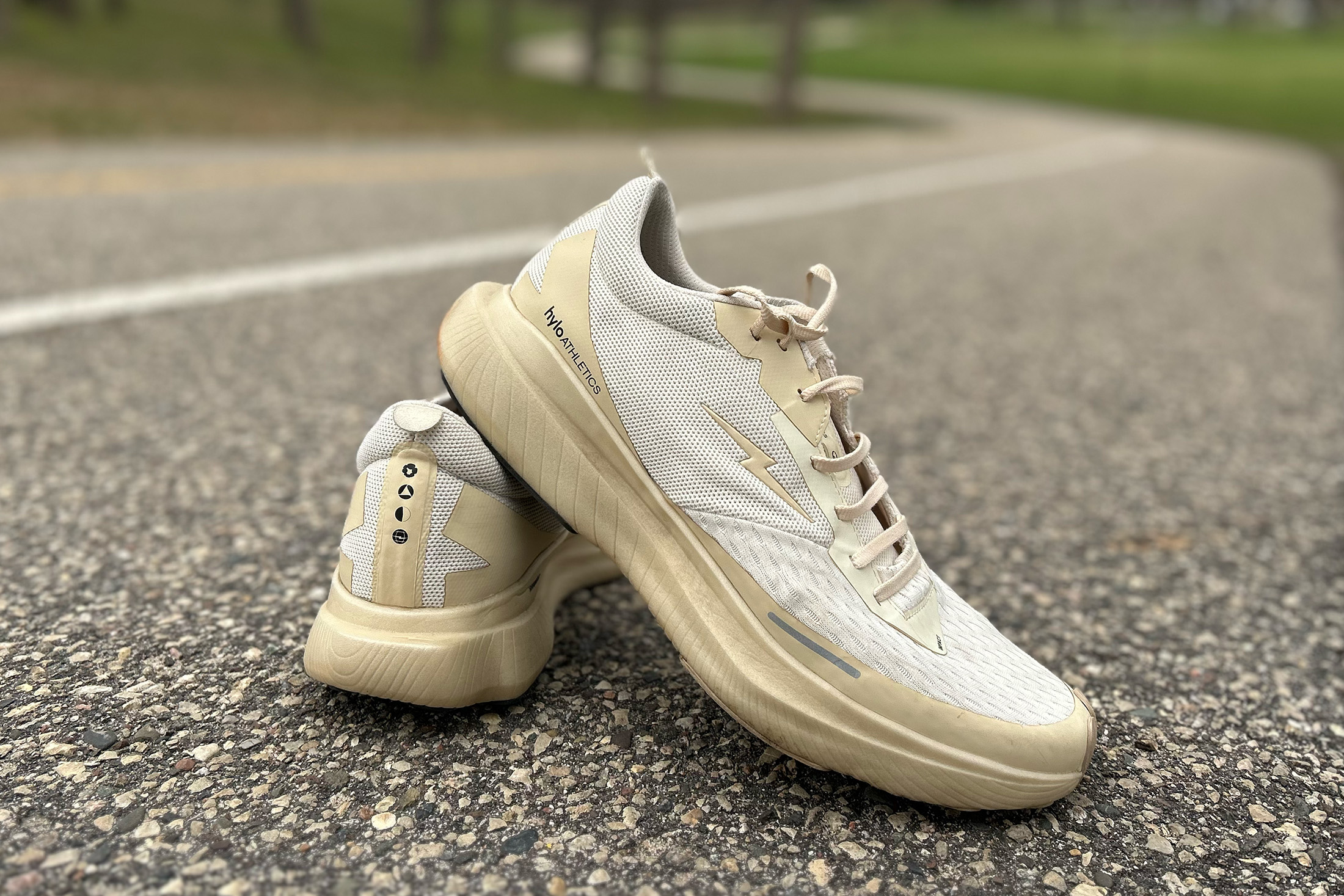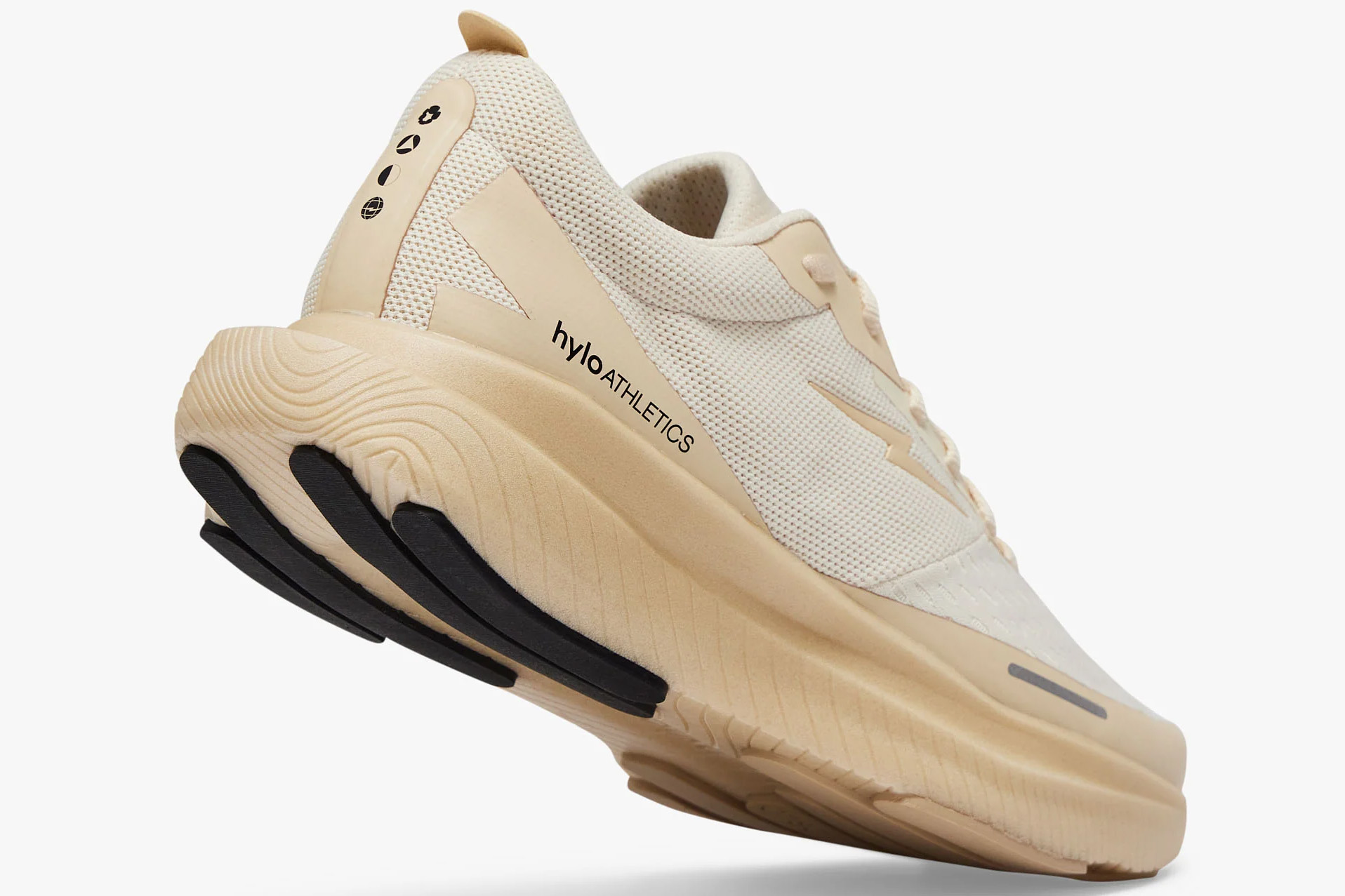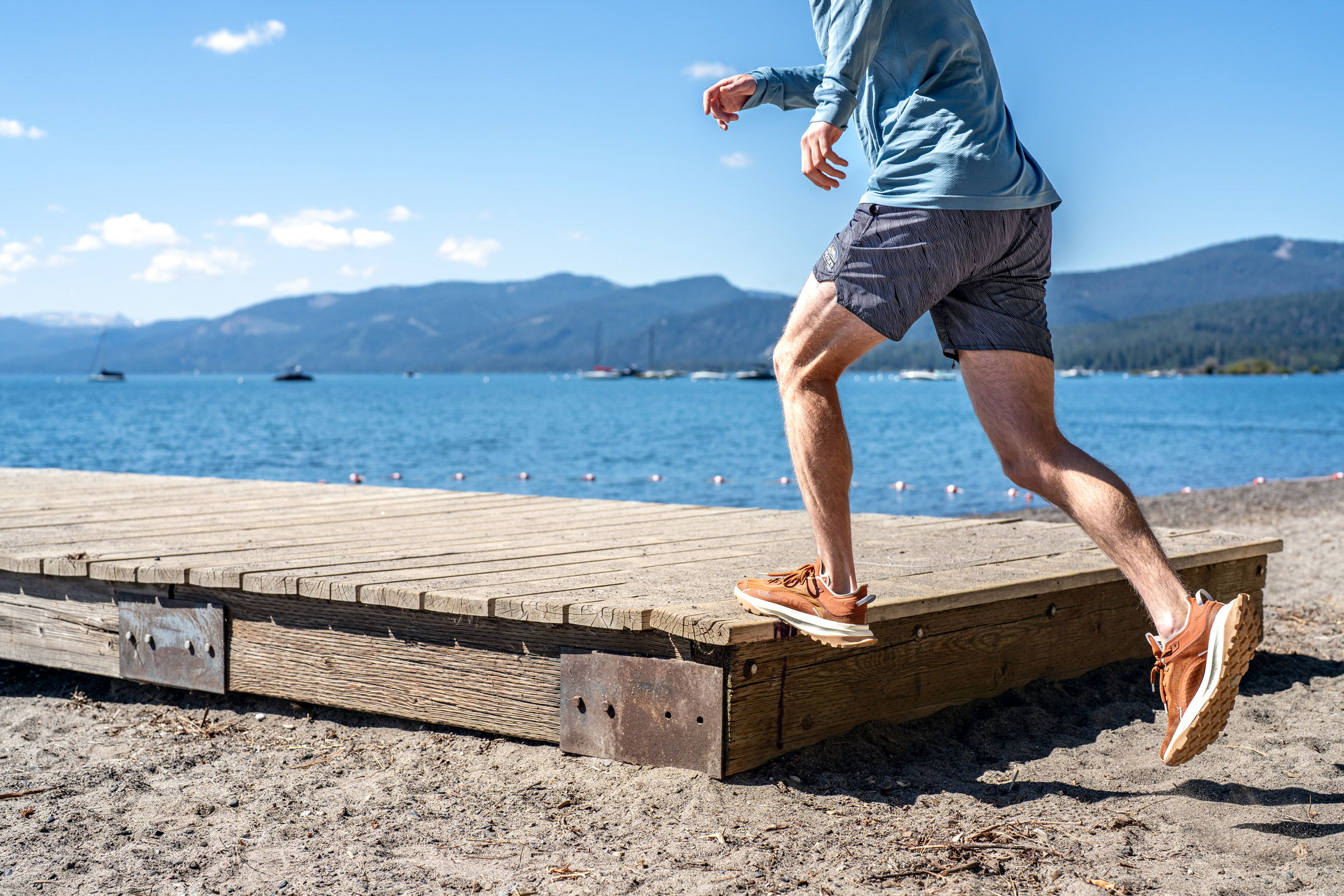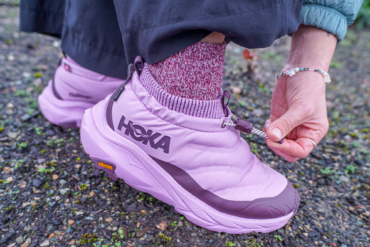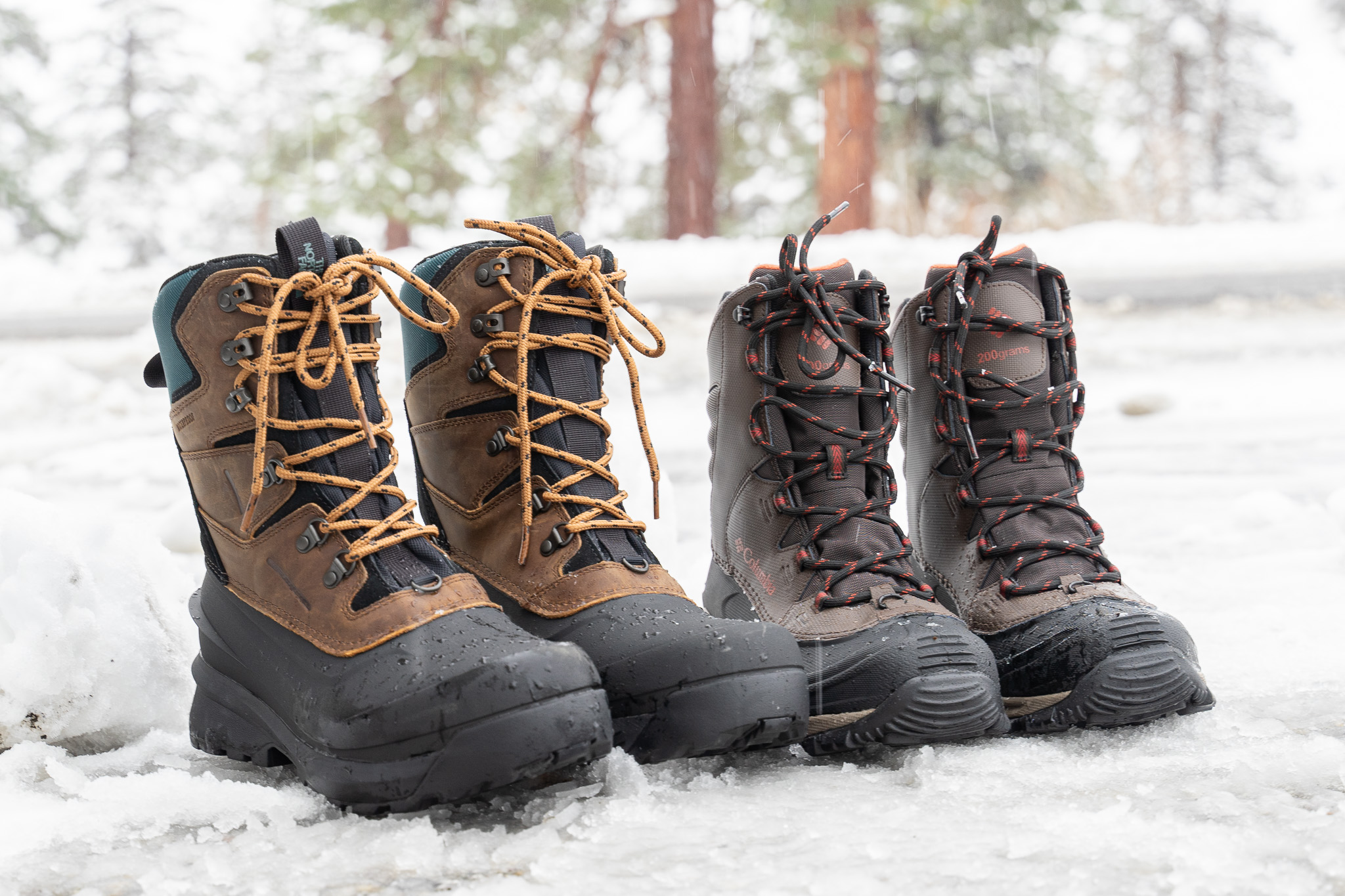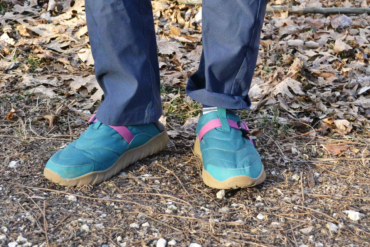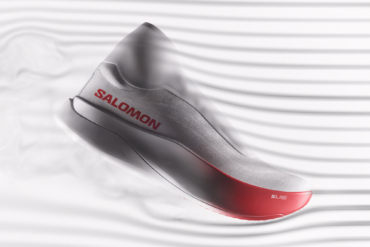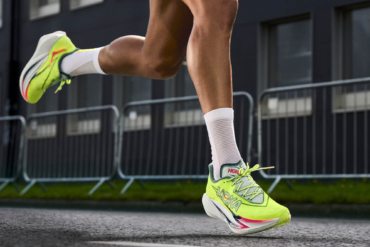“These shoes are almost perfect,” I thought. With 4 miles down and 2 to go — my typical training run for new shoes — I could tell that Hylo’s debut running shoe, the “Impact,” was not going to shatter my PR. The shoe wasn’t overwhelmingly fast, and it didn’t feel remarkably different than any other well-made running shoe.
Oddly, though, that similarity to so many other big-name shoes I test was, in itself, kind of remarkable. While it felt similar, it certainly wasn’t built similar to the competition. Sugar cane in the foam, cellulose in the laces, and castor beans in the upper were just some of the noteworthy sustainability features built into the Impact.
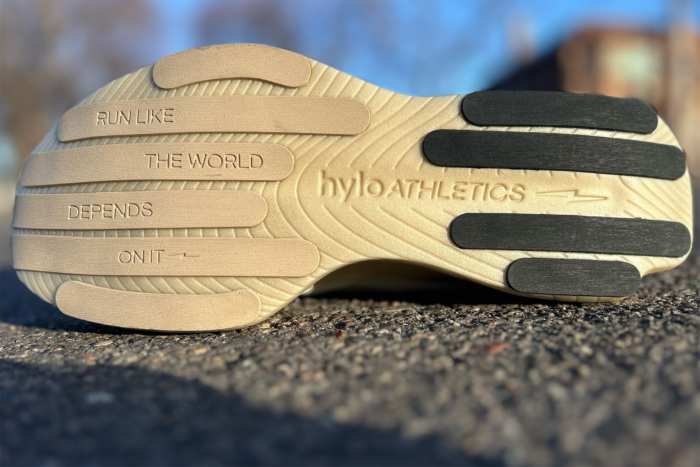
“Run like the world depends on it” — the cornerstone of Hylo’s mission statement and the mantra stamped onto the sole of every shoe — sets the bar pretty high for an upstart brand.
After a few months and about 60 to 70 miles of testing, I can’t say if the Impact really will save the world. But I can attest to how well it performs for everyday road runners, and anyone who’s keenly aware of the “footprint” their shoe makes.
In short: The Hylo Impact ($165) presents the latest and possibly best attempt at making a performance running shoe with minimal… well, impact. It combines a unique and comprehensive mix of sustainable materials and manufacturing approaches that reduce, reuse, and recycle to various degrees. If you’re training hard for serious races and marathons, shoes with traditional manufacturing still have the true performance edge. But for folks who just need a reliable, comfortable, nimble road shoe, the Impact offers competitive performance with superior sustainability.
Whatever your pace or distance, check out our Best Running Shoes to find your perfect pair!
- Stack: 33mm (heel)
- Drop: 8mm
- Weight: 11.9 oz/337g (tested size 13 M) / 285g (sample size 9)
- Surface: Road
- DWR: PFOA-, PFAS-, and PFC-free, bio-basd
- Upper: 100% bio-based knit upper (Rilsan made from castor beans)
- Midsole: Bio-based EVA (made with sugar cane)
- Outsole: 60% Natural rubber
Pros
- Great sustainability story
- Technically recyclable
- Comfortable, responsive shoe
- Eco-friendly DWR for all-weather running
Cons
- Not a race shoe
- Strictly on-pavement tread
Hylo Impact Running Shoe Review
Eco-Friendly Shoe
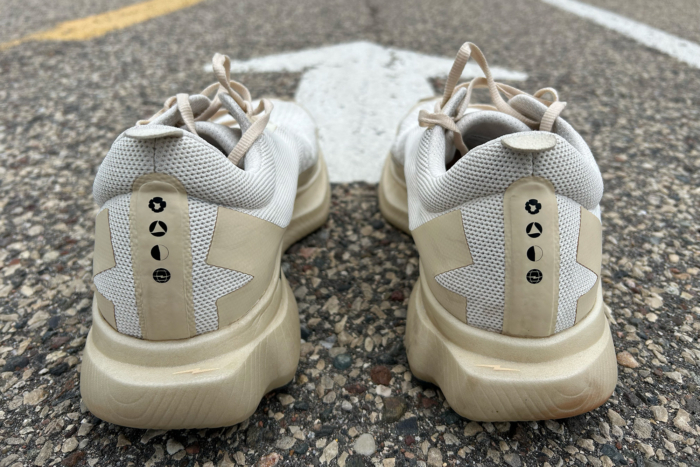
If you’re shopping for the Hylo Impact, it’s more than likely because you’re in the market for a sustainable option specifically. Hylo provides a veritable laundry list of eco-accolades alongside the shoe, from the composition of its outsole (60% natural rubber) to its midsole (bio-EVA with sugar cane) to its insole (20% bio-based foam), all the way to the upper (PFC-free DWR and castor beans) and even the laces (Tencel Lyocell cellulose).
You’ll even see the brand’s B-Corp score (104.3) and the measured carbon footprint of manufacturing (8.63kg/co2e). So, if your sole concern when shopping for running shoes is the minimum environmental impact possible, Hylo has just about all the data you’d want.
Hylo Impact: How It Compares
I recognize how much raw material and waste come with footwear, particularly running shoes. They don’t really have a second life, and all the materials that make a great shoe tend to be nonrenewable. But there aren’t many great eco-conscious alternatives when it comes to a shoe that’s lightweight, quick, comfortable, and at least moderately durable.
All that’s to say that while the environmental impact of a shoe is a concern, ultimately it has to perform for me to consider it. So the real test of the Hylo Impact comes from the run. The Impact looks and feels exactly the same as any other modern running shoe.
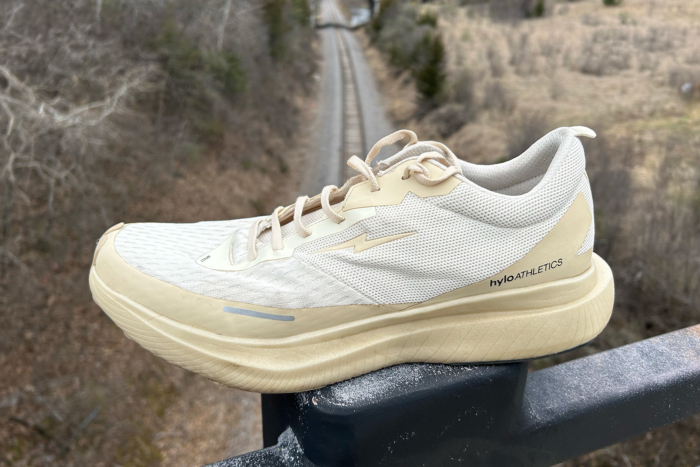
At about 11 ounces for my size 13 (285g for sample size 9), the Impact is perfectly in line with my other running shoes; it’s not an ultralight running shoe, but it makes for an acceptably light everyday fitness shoe.
The knit upper is breathable and soft, but surprisingly, the PFOA-, PFAS-, PFC-free (Bluesign-certified) DWR beads deflect light water very well. Under a delicate stream from the faucet, it shed water nicely, and although some areas felt damp on the outside, no water permeated through the outer.
That said, this is by no means a waterproof shoe, and I wouldn’t use it to splash through deep puddles. On a misty day or if the skies threatened a sprinkle, the DWR should be sufficient.
Running Impressions
My test runs for the shoe varied from 3 to 6 miles at a pace between 8 and 9 minutes per mile. For these runs, the Impact felt every bit as fast and comfortable as the other shoes I like in my rotation. The cushion falls shy of “maximal,” though it’s plenty plush at 33mm in the heel with 8mm of drop. At no point did I ever experience foot pain or fatigue after a run in these shoes.
On the plus side, while the Impact provides a healthy amount of midsole cushion, it doesn’t sacrifice the precision I’ve seen in other shoes at this height. The shoe didn’t suffer any of the “spillover” between the knit upper and midsole that afflicts some shoes of this height. I never suffered a stumble or felt disconnected from the road during a run.
If there’s a downside, it’s that the shoe doesn’t have the surprising “wow” factor in terms of speed that I’ve felt in some other shoes. Hylo lists the Impact as having “Max” responsiveness — and it does add a little bit of bounce to the gait — but it’s not the springy rebound that cutting-edge running shoes with all synthetic materials possess.
That said, on the whole, the shoe definitely feels agile. It’s as capable on paced runs that span a full hour as it is interval training on stairs. It’s light, breathable, cushioned, and overall comfortable.
End-of-Life Care
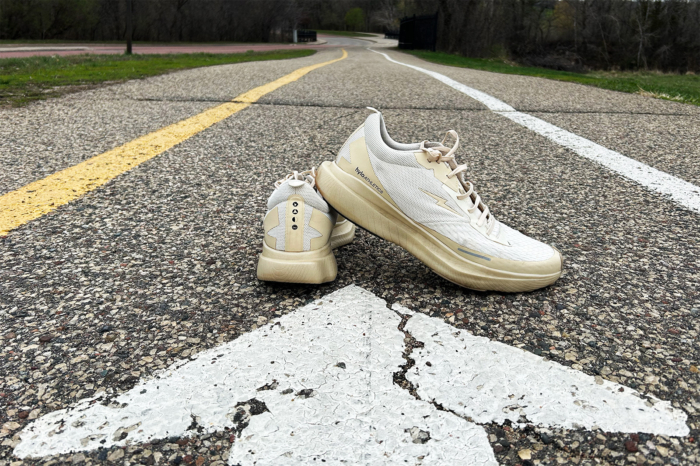
The one big question mark, of course, will be longevity. I can’t say whether the Impact will fall short of, outlast, or mirror the lifespan and wear pattern of my traditional running shoes. So far, these shoes show virtually no signs of wear beyond some dirt and the loss of new-shoe luster.
One area I will monitor is the outsole. Hylo says it drew inspiration from Formula 1 tires to “displace water and increase traction.” Effectively, Hylo added rubber “pods” that run lengthwise along the forefoot and heel. According to the brand, this increases ground contact when wet. Honestly, I didn’t notice much either way when I ran in light rain.
But I’ll be curious to see if those rubber pods remain adhered to the shoe in the long term. Again, at this point, so far, so good!
However, this shoe will not last forever. Happily, the Impact saves one final feature for its last hoorah. Hylo says it will recycle the shoes by stripping them down into component parts, separating them into waste streams, and then shipping them to be blended with virgin materials to make a new “master batch” that’s poured into a mold to make new Hylo products.
And, supposedly, it’s all done through your phone (well, almost). The shoes have an NFC chip in the tongue (on my pair, only the right shoe is activated). Most smartphones can read this automatically with a simple tap. It brings up Hylo’s recycling page where you can begin the process of shipping your shoes back. I’ll be sure to update this review once I’m ready to try it out!
Good Performance, Great Story
In so many ways, this shoe stands as the opposite of the growing trend toward Artificial Intelligence and increasingly synthetic replicas of organic ideas and ingenuity. But in a strange way, it’s after the same thing. The Hylo Impact endeavors to achieve through natural means the high standards set by the world of synthetic wonders.
In that way, this shoe is not designed to outperform the competition but to simply keep pace with it. Over the last few months, that’s exactly what the Impact has done on my test runs.
Hylo’s debut shoe accomplishes what most cannot — a lighter footprint with greater impact.
